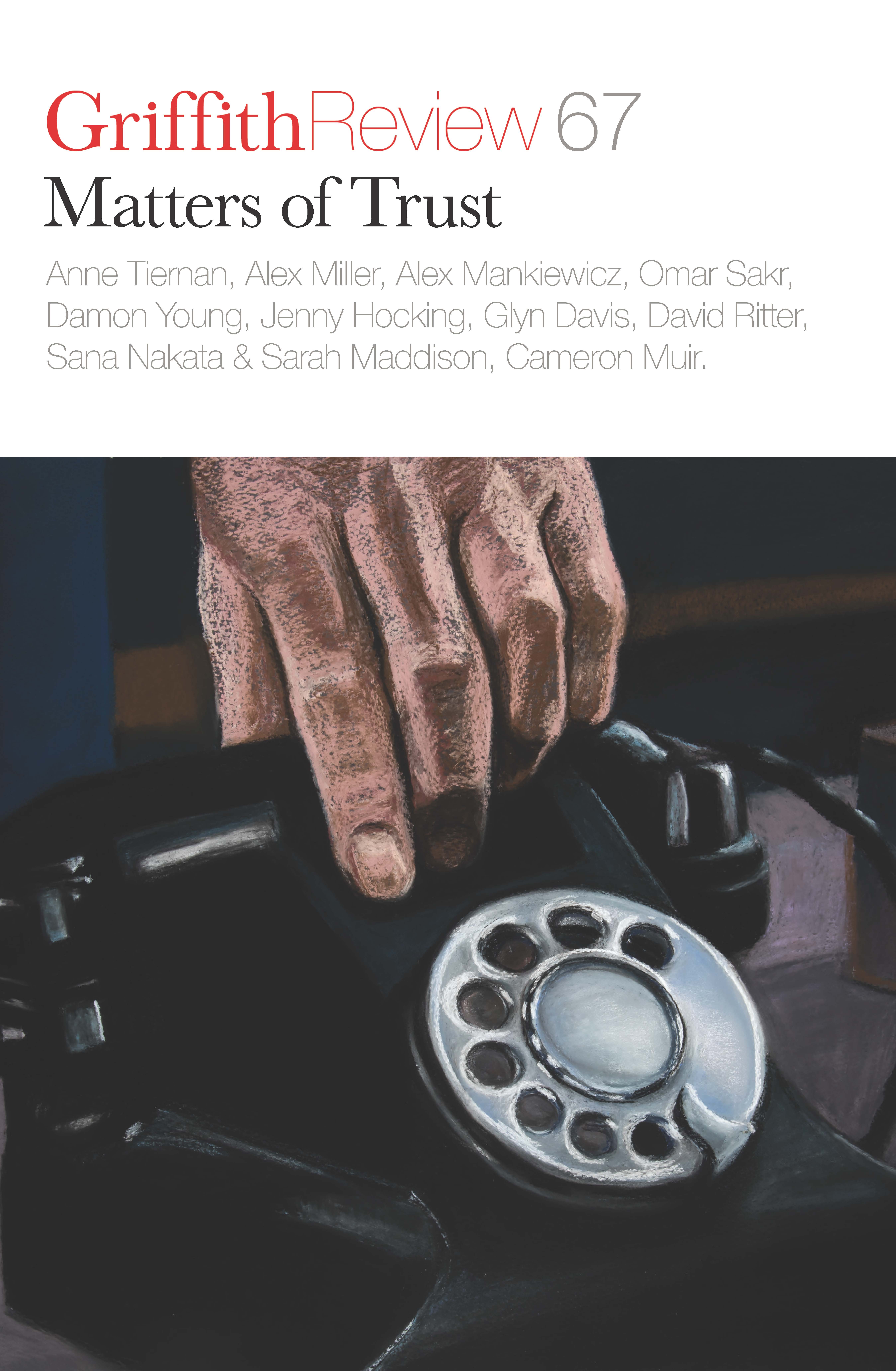Featured in

- Published 20200204
- ISBN: 9781925773804
- Extent: 264pp
- Paperback (234 x 153mm), eBook

Already a subscriber? Sign in here
If you are an educator or student wishing to access content for study purposes please contact us at griffithreview@griffith.edu.au
Share article
More from author

Ripped in half?
Introduction ON THE HIGHWAY before the turnoff to the tranquil village where my small house sits in the heart of Europe – in Vojvodina, an hour...
More from this edition

Where the voices aren’t
MemoirIN 2018, THE University of Oxford ran an essay competition that asked, ‘Are Men (Still) Beasts?’ Students were prompted to respond to an early...

Less than 20/20 vision
MemoirEVEN A PERFECT metaphor runs its course. For decades, 2020 has offered a convenient label for conferences and strategic plans alike – perfect sight about...

On being sane in insane places
MemoirI’VE BEEN THINKING about how my body inhabits place and how it changes – fluctuating between comfort and pain – depending on the state of my...